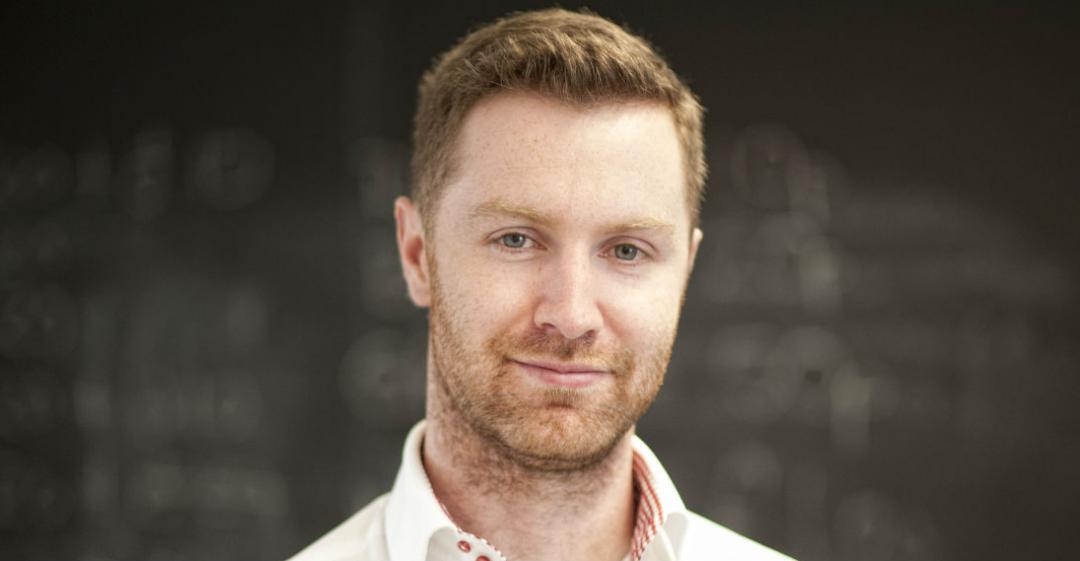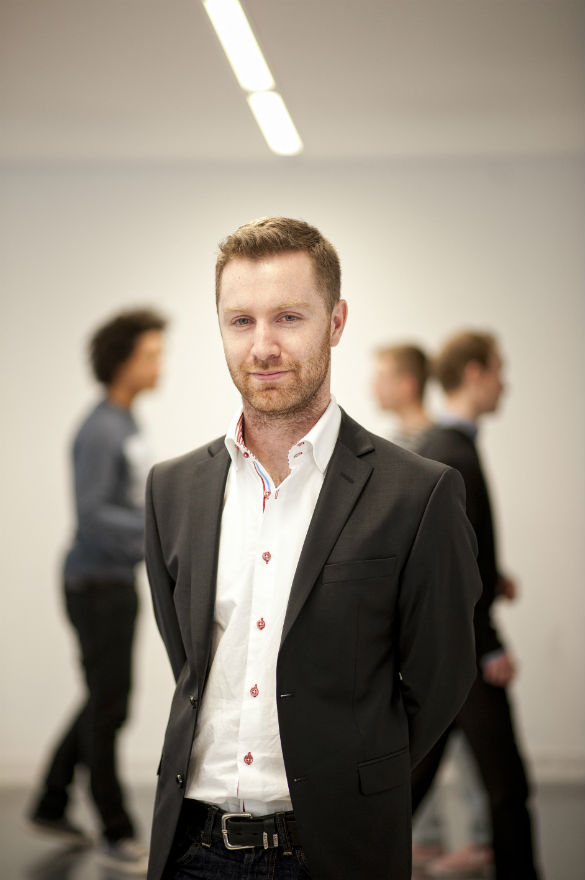“I was tired, had no free time and was pretty much broke.”

What work were you doing previously?
On paper, I had the sort of career that most people would dream about! I was a sound engineer.
As a teenager, I was one of those guys who would tell you that "Music is my life, maaan!". I was a keen songwriter, guitarist and desperately wanted to be a record producer. So it was absolutely fantastic when I got my first job as a sound engineer, recording bands in a busy studio in Shoreditch.
I was recording, mixing, mastering, writing, arranging, performing, producing – all the things that I needed to be good at to become a legendary producer!
What are you doing now?
I'm now a director of an online marketing agency in Camden called atom42.
I'm in charge of strategy for most of our clients, mentoring our team managers, and generally running the company with our founder.
Why did you change?
Being a sound engineer was a tough life.
As time wore on, the 80-hour weeks, night work, weekend work, not seeing my family or girlfriend, and low pay, really took their toll. I stuck it out for two years, but by then I was totally allergic to the idea of having a career in music.
I couldn't even listen to it any more – after a 12-hour day of listening intently to the same drum track over and over again, the last thing you want to do is stick a CD on. Radio 5 and I became well acquainted and I was at a bit of a loss as to what to do with my life.
In short, I was tired, had no free time and was pretty much broke!
When was the moment you decided to make the change?
My career change actually happened in two parts.
The first was a migration from music to online marketing. I'd already decided a few months into my final one-year contract that I didn't want to do it anymore. But I wanted to prove to myself that I could stick it out! However, I didn't know what I wanted to do until the studio manager came up with an interesting business idea.
Quite often, I'd mix a band's album and they'd ask me where they could get a thousand copies made, with cases, printed covers, etc., so the studio manager and I bought a duplication machine and printer. I was recording the bands and then I'd send them next door to him to get their CDs burnt and printed.
When I eventually left the studio, our customer stream had dried up, so I built a website. But the website had no traffic, so we then had to learn SEO to get some! I remember our first customer paying us £250 to get a hundred CDs made. It was such a strange feeling to be sent a cheque by someone I'd never met!
Things then got more advanced – I learned how to code using PHP and MySQL, and learned a bit about pay-per-click (PPC). But gradually people stopped buying CDs and the economy had also taken a downturn.
Our income halved. I began paying for both of our living expenses on my credit card (a massive mistake, in hindsight – I'm still paying off the debt today and won't finish until the end of this year). So the business was suffering and much of the work was pretty dry – filling out VAT returns, etc. I realised that the part of the job I enjoyed the most was online marketing, so I should get a job doing that.
This was the second change – from running my own business to working for an online marketing agency.
I was dreading working for someone else after having been my own boss for six years, but eventually financial constraints forced my hand. I worked out the exact date that my money would run out. I started my job at atom42 on that very day.
Are you happy with the change?
Absolutely. I've found my niche.
I've focused on getting really good at my job, which has meant that I've risen to the top and gained the autonomy I had when working for myself.
It's also been massively advantageous to have worked for myself prior to working for atom42, because I know what it's like to be the client. I can put myself in their shoes because I've been there myself. And I've understood the needs of atom42 from day one, which has expedited my rise to director.
What do you miss and what don't you miss?
I don't miss anything about the music industry.
In fact, it makes me cringe these days when I see hopefuls on TV working so hard to get into it. For the most part, it really isn't glamorous at all – quite the opposite.
When I was working for myself, it was nice to have total control of my time – I could work all night, or go out in the day if it was sunny. But I don't miss struggling and sitting by myself at home all day long, not really interacting with people. And I don't miss the stress of struggling to pay my tax bill.
How did you go about making the shift?
The first shift was very opportunistic. The studio manager saw an opportunity and I joined him. Then I just learned what I needed to learn in order to make it a success.
The second shift was trickier. First, I had to determine what I really wanted to do and what I thought I could be good at. Once I'd set my mind on online marketing, I job hunted, set myself a hard deadline, and got myself an interview.
My cover letter was pretty good and I was able to add value immediately. I did this by pointing out that their job ad was causing an error on their site and giving them a solution to fix it.
I was worried about making the shift in habits, from waking up at 10 a.m. and working in my boxer shorts to being in the office at 8.30 a.m. and presenting to clients, but it was actually really easy. I loved the thought of coming to work each day, because the work was so interesting and the people were so welcoming. They immediately became close friends and I looked forward to seeing them each day.
What didn't go well? What 'wrong turns' did you take?
None – it was a massively positive change.
How did you handle your finances to make your change possible?
Shifting to atom42 was a positive financial change as my previous business was basically failing.
The change meant that I could start paying off my debt and enjoying life.
What was the most difficult thing about changing?
Having to learn very quickly and become an expert so that my new clients would have faith in me.
I had to learn many new skills, particularly people skills, and generate results. It was a steep learning curve and took me about six months to fill in the gaps in my knowledge and experience.
What help did you get? 
My manager and the company founder were very helpful, and all my new colleagues helped me when I needed it. They also pointed out some great online resources to help me learn.
What have you learnt in the process?
It doesn't matter if you don't start out on the right track. You can make small sideways / diagonal steps to find your niche.
In fact, your experience and knowledge will be broader than your peers as a result of working in different fields.
What do you wish you'd done differently?
I wish I'd done it two years earlier, before the debt really started racking up.
What would you advise others to do in the same situation?
Don't wait until your hand is forced into making a change. If you do, there is the risk that you'll make a rash decision.
I was lucky in that respect as things just fell into place.
What resources would you recommend to others?
Firstly, use your own rational brain. Think clearly about what you'd be good at and what steps you need to take to make things happen. There is so much material out there that you could be reading, so you need to filter it to get to the relevant stuff quickly.
One book I would recommend unreservedly is So Good They Can't Ignore You, by Cal Newport. It shows how thinking about what you can offer the world will get you much further than thinking about what the world can offer you.
Finally, if you need to build better habits, try James Clear's blog.
To find out more about Atom42, visit www.atom42.co.uk
What lessons could you take from Paul's story to use in your own career change? Let us know in the comments below.



